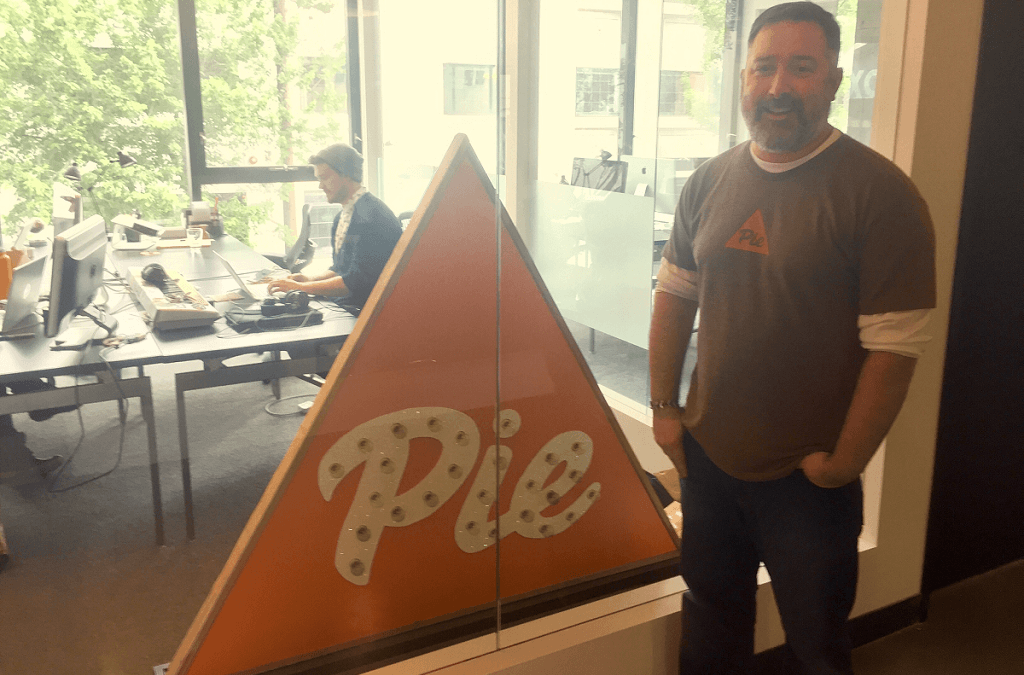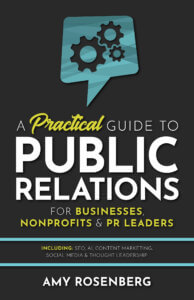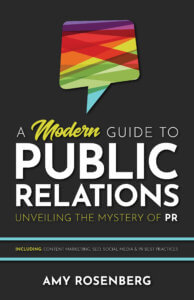Our Own Slice of PIE: Rick Turoczy
If you run a Portland startup rooted in tech, there’s a pretty good chance Rick Turoczy knows who you are. Rick’s blog, Silicon Florist, has been around for over a decade, and is at the epicenter of the startup bloom in Portland. Amy and I chatted with Rick for an hour in a Pacific Northwest chic conference room inside the co-working space, CENTRL Office’s, eastside location. But our talk with Rick had less to do with his blog and was more focused on his startup accelerator project, Portland Incubator Experiment (PIE). Although this episode of PR Talk digs into the Portland startup scene and PIE’s hand in it, Rick provided us with some great PR tips for small businesses looking to garner media coverage.
What is PIE?
According to Rick, PIE is an ongoing experiment to see how corporations, governments and established entities can work with startups to best suit one another. Rick says that those groups don’t typically speak the same language, so PIE acts as the diplomat between them. Founded eight years ago, the business has changed along the way. What started as a co-working space later transitioned into a consultancy, and most recently, into an accelerator.
As for what PIE’s clientele or member-base looks like, they primarily work with tech companies at the founder level. This means companies that haven’t hired anyone yet, but the ‘honeymoon phase’ is over and they’re realizing they could use mentorship to help move their company forward. However, Rick is excited to report that PIE is starting a new accelerator that focusses on companies with physical products.
Rick also explained the PIE Cookbook to us. Anyone can add to the open-source book of knowledge. He opened it up to everyone because he admits there isn’t one recipe for success. We love the tongue-in-cheek title of the book, but its community knowledge-sharing aspect really has our hearts thumping.
How does PIE work?
Startups are unpredictable, so Rick will regularly sit down with each to discuss the problems they’re experiencing. Family dinners with all eight startups set the stage for peer-mentorship. Startups experience similar problems at different junctures, so family dinners give everyone a solid opportunity to crowd-source solutions.
First Month: Everyone is working on the actual product or service at this stage, culminating in presentations to the rest of the group, no matter what shape the work is in. Each team gets critiqued on their process, but it’s a great place for the program to start because most of the founders are confident about their product as they’re usually developers who start with this first. So, this provides a gentle handshake into the PIE experience with a lot of positive build-up.
Second Month: Here, the teams work on the actual business. Rick says that founders are least comfortable at this stage. Strap in and get ready to be humbled.
Third Month: This month is all about story. You have the product and business model, but you need to learn how to make a crowd care. At the end of this month, on ‘demo-day,’ each group presents their collective of work. This is the end of the intensive program and from here everyone starts working more independently, with PIE’s resources and mentorship still available.
“We’re an accelerator. If we accelerate their failure, that’s as valuable as accelerating their success because they’re not wasting time on something that’s never going to go anywhere,” Rick says.
After the third month, graduate companies are encouraged to act as mentors for incoming classes by providing resources, making suggestions and generally enforcing the community aspect of the program.
How do you get in PIE?
Your startup has to pass the thorough application process. PIE uses a rating scale heavily favoring the people in the company over the idea. Rick would clearly rather invest his time and money in a company with an A+ team with a B+ product than a B+ team with an A+ product.
First, you have to tackle a written application with fairly straightforward questions, followed by a more in-depth questionnaire after that, dealing with more substantive market and competition questions. Finally, you’ll meet face-to-face for a process that’s like hiring a job candidate. PIE accepts 400 applications for every cycle — whether it takes one week or one month to go through them!
PIE and a Scoop of PR
Malia Spencer and Mike Rogoway: we hope you listen to this episode because Rick clearly adores the work both of you do. In classic PR Talk guest form, Rick waves a PR warning flag at startups trying to garner coverage: don’t just throw out press releases and expect the PR results to pile up in the publications. Take the time to research who you’re pitching, see exactly what they are writing about and develop relationships with them ahead of time. Even just following them on social, retweeting their stories and productively commenting on stories show that you are interested in their work.
Further, dig deeper into the story you are trying to tell. Unless your company just landed $30 million in funding, a journalist isn’t going to write about you just for the sake of writing about you — they have too many irons in the fire as it is! Instead, take note of some broader market themes and make a substantive comment about it — tell them how your company aligns or goes against that trend.
Here’s a new piece of advice: don’t be afraid to talk about your competition! Rick keenly points out that addressing your competition validates that there is actually a market for your company.
Rick cops that at the beginning of his career in marketing, PR responsibilities often fell into his lap, but it is the first service he would hire out due to the time it takes to build relationships and hone the specific skill-set. PIE does help compile media lists for each startup that fits their industry verticals, though, so something tells us that Rick hasn’t fully kicked PR out of his system just yet.
About the guest: Rick Turoczy
Rick states that he is “More than mildly obsessed with the Portland, Oregon, startup community.” In addition to being cofounder of PIE (Portland Incubator Experiment), he’s the founder of Silicon Florist (blog covering the Portland tech startup and open source community), cofounder & advisor at Oregon Story Board, Cofounder & advisor at TechfestNW and a board member at Oregon Games Organization and Technology Association of Oregon.
Connect and follow Rick on social media:






